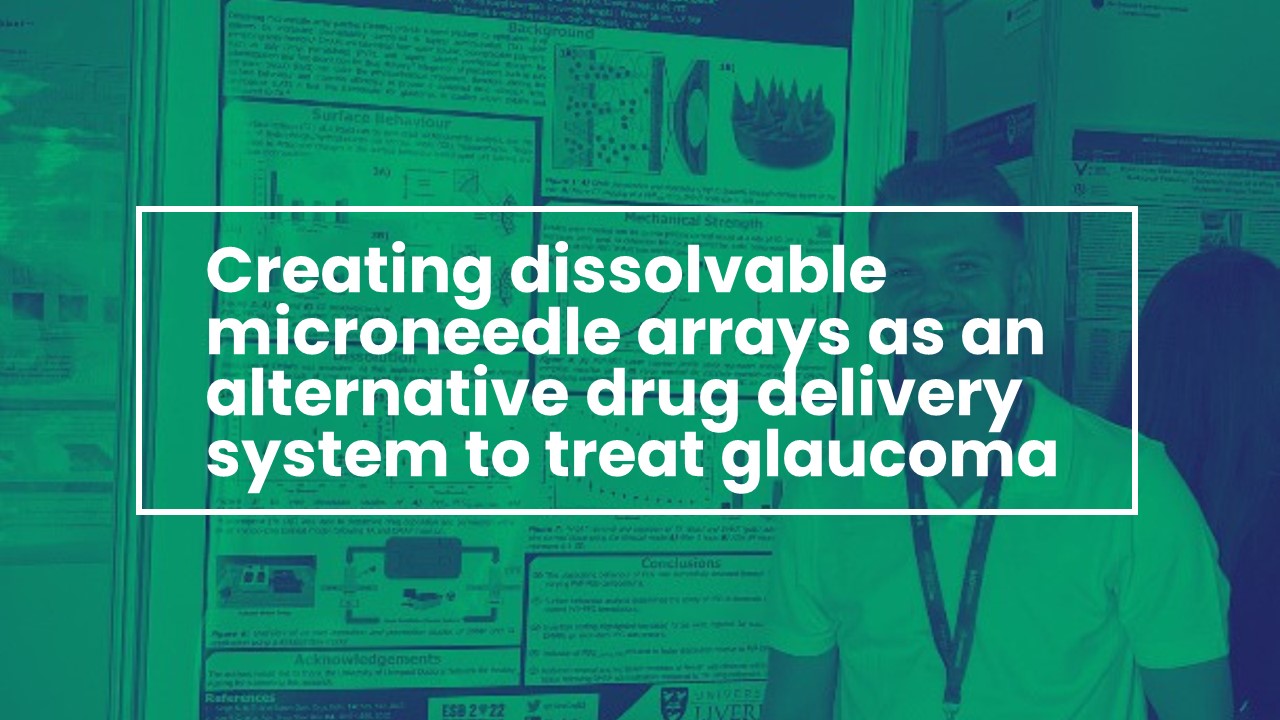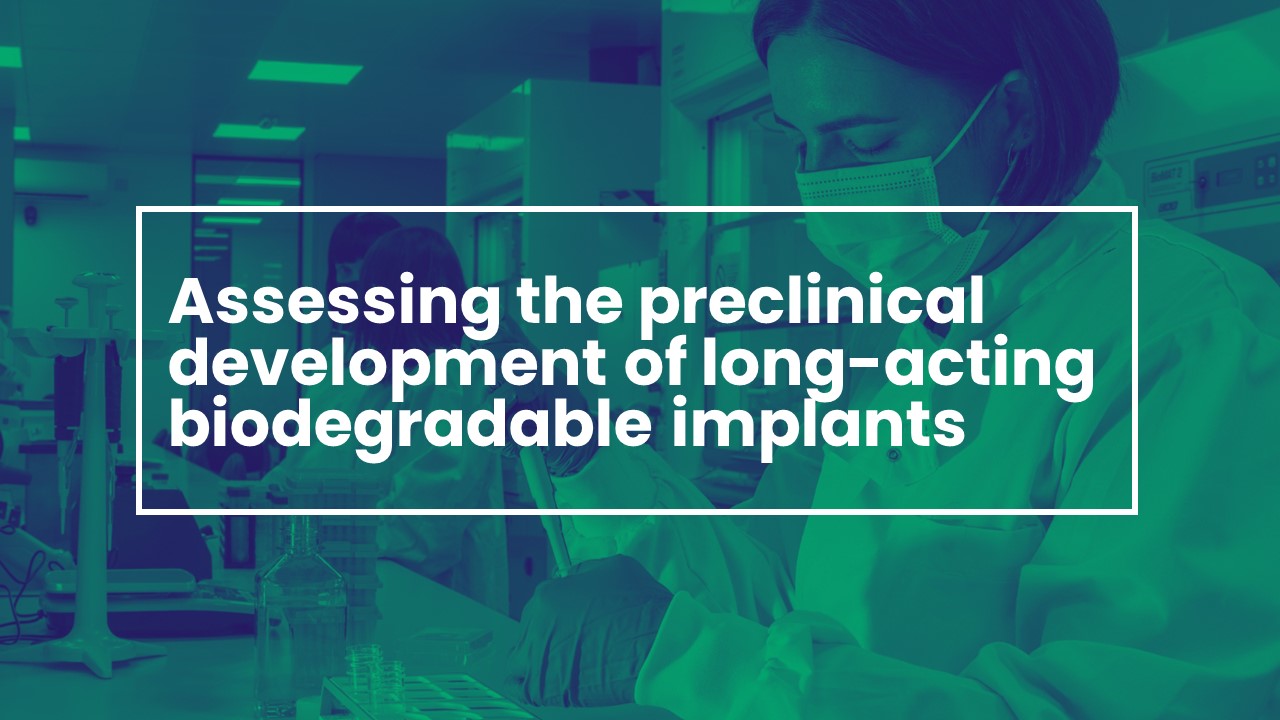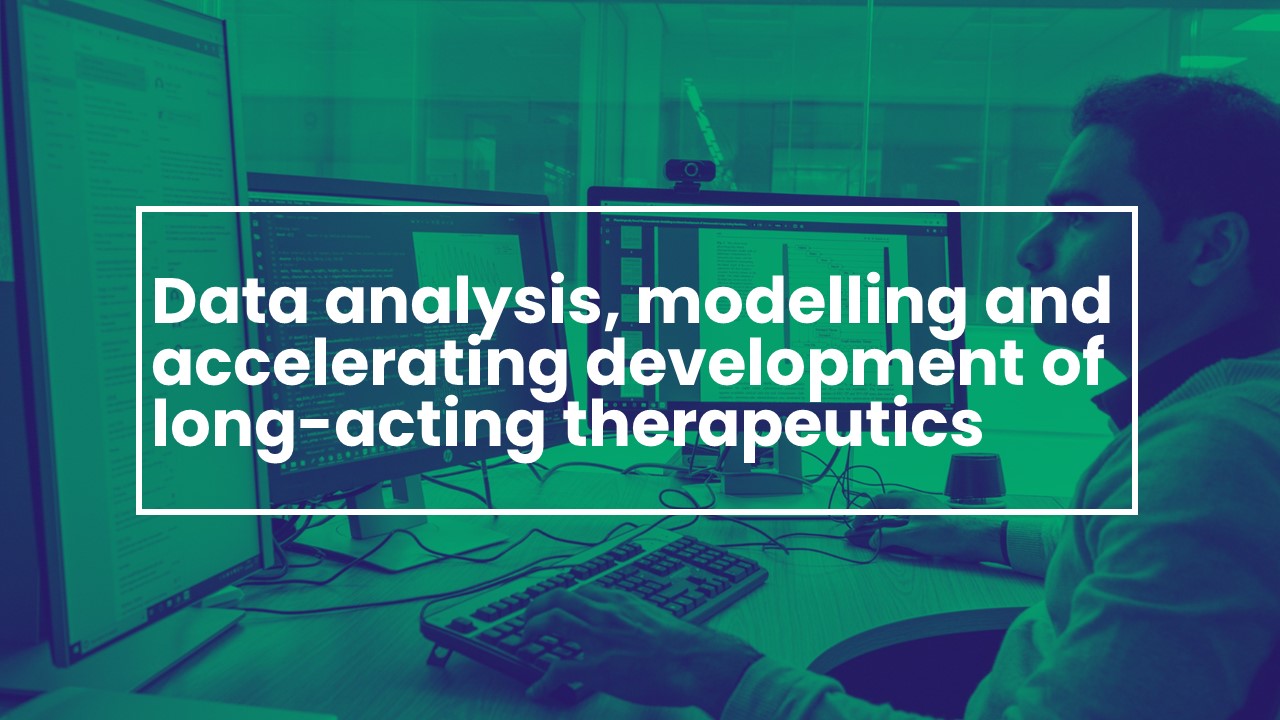"drug development" blog posts

Creating Dissolvable Microneedle Arrays as an Alternative Drug Delivery System to Treat Glaucoma
I’m Elliot Croft, a PhD student based in the Department of Chemistry. I obtained an MChem degree in Medicinal Chemistry with Pharmacology at the University of Liverpool. During my undergraduate studies, I undertook research projects focusing on polymer synthesis and controlling the size of inorganic nanoparticles for targeted drug delivery. Now, my research focuses on the development of bespoke dissolvable microneedle arrays (DMNs) for the treatment of glaucoma which provide sustained drug delivery which cannot be achieved using the typical treatment method – eye drops.
Posted on: 22 February 2023

Assessing the preclinical development of long-acting biodegradable implants
I’m Dr Meg Neary, a postdoctoral research associate at the Centre of Excellence for Long-acting therapeutics (CELT). My work involves pre-clinical development of long-acting antiretroviral therapy (LA ART). LA ART provides exposure to a drug over a long period of time. This means instead of taking oral tablets, the contents of which are eliminated by the body over a very short period of time, patients can take LA ART and have effective exposure to the same drug concentration for a period of weeks, months or years.
Posted on: 31 January 2023

Data analysis, Modelling and accelerating development of Long-acting therapeutics
Data analysis and modelling in pharmacology is an essential technique for understanding and predicting the effects of different drugs on the human body. It allows researchers to interpret large amounts of data from clinical trials, lab experiments, and other sources, in order to understand how drugs interact with different biological systems and how they might be used to treat various diseases or conditions. It is an important part of the drug development process, and helps researchers optimise drug therapies and improve patient outcomes.
Posted on: 13 January 2023